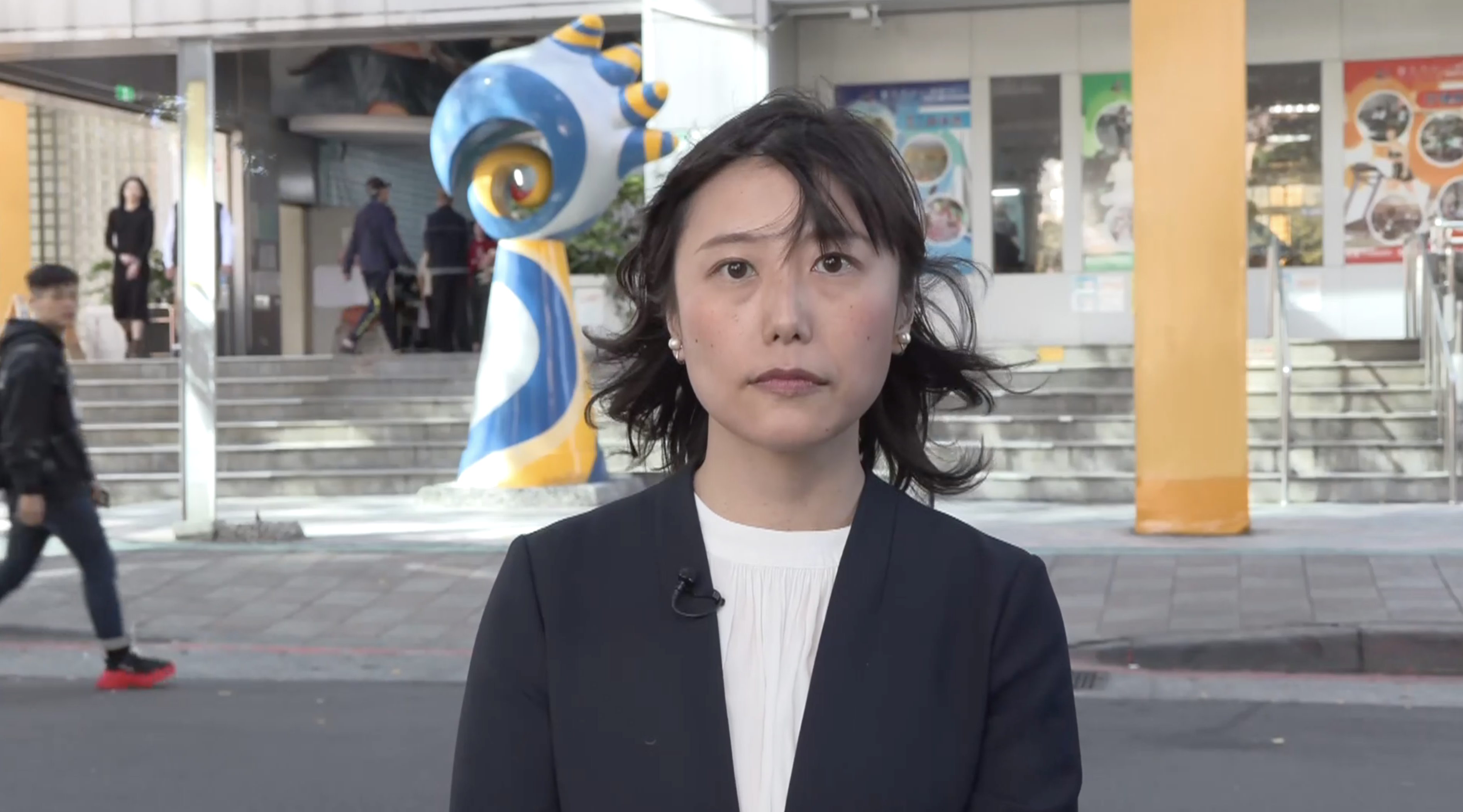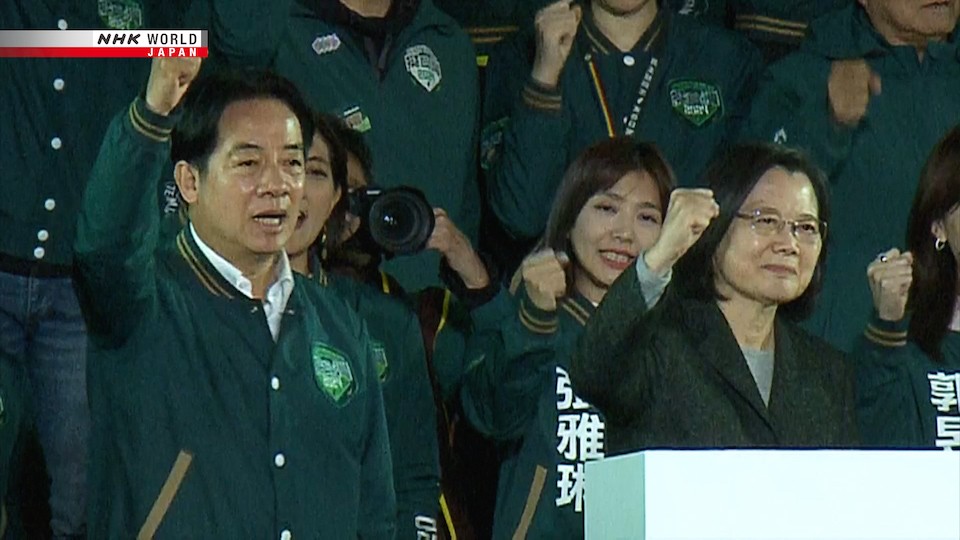He held a news conference at around 8:30 p.m. local time. He said, "Our victory has great significance. It's a victory for Taiwan's democracy."
Lai's victory means the same party will be in power for a third consecutive term for the first time since direct presidential elections began in Taiwan in 1996.
Lai previously worked as a doctor before serving as mayor of Tainan City. He became Taiwan's premier during incumbent President Tsai Ing-wen's first term and was later her vice president.
Lai Ching-te is welcomed with applause.
Lai garnered support by pledging to continue the policies of President Tsai Ing-wen, who has been in power for the past eight years.
Regarding relations with China, he says he will counter Beijing by strengthening ties with the United States and other countries.
During the campaign, Lai said Taiwan should be the world's Taiwan and should not return to a policy of relying on China.
He also stressed he will focus on domestic priorities, such as housing measures and child-rearing policies.
Candidates from opposition parties concede defeat
Hou Yu-ih of the biggest opposition Kuomintang party conceded defeat at around 8 p.m. local time. Speaking to supporters, he said, "It is very regrettable that my efforts were not enough. I disappointed you by not being able to bring about a change in government. I apologize for that."
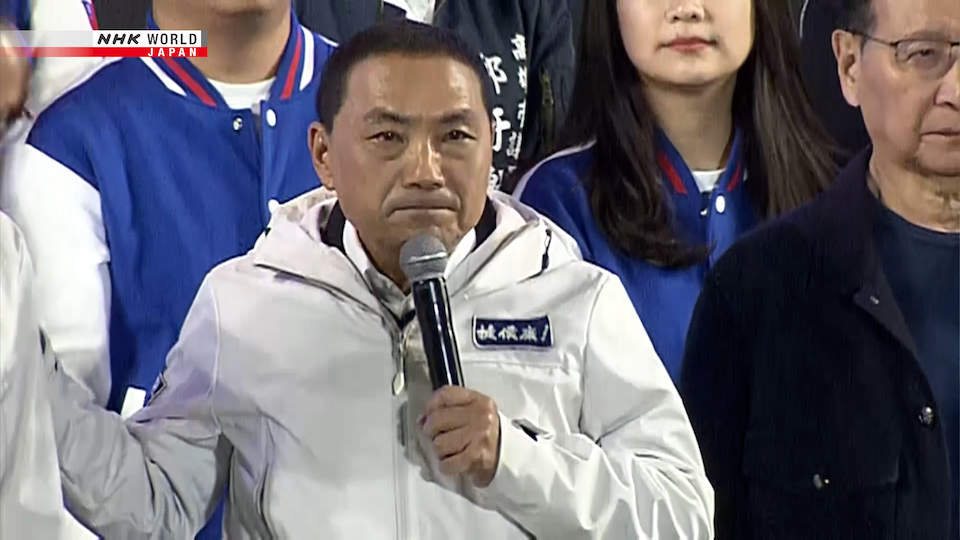
Ko Wen-je of the second-largest opposition Taiwan People's Party also conceded defeat. He told his supporters, "I won't give up, so I don't want anyone else to give up. We will continue our efforts, and we believe that people will vote for me and the Taiwan People's Party with confidence in four years."
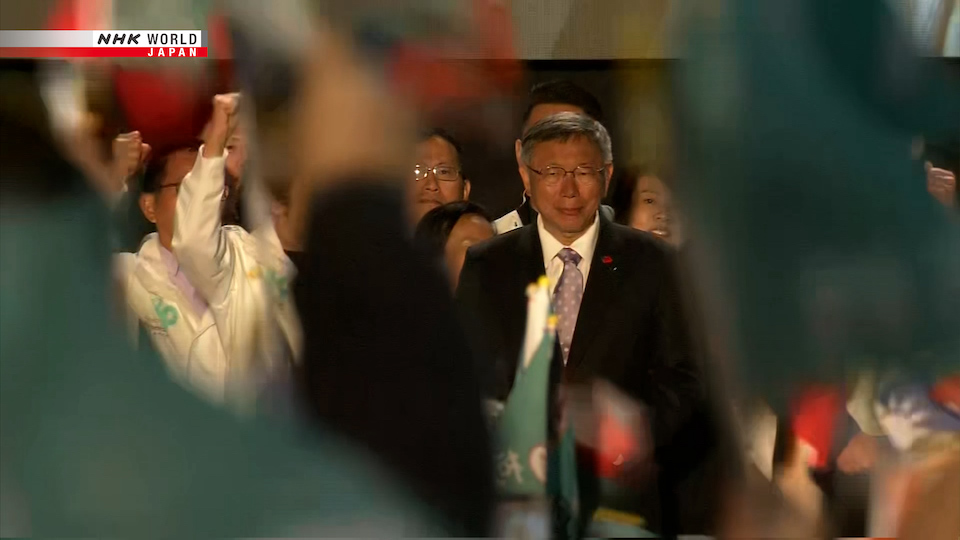
Taiwan's Central Election Commission has announced Lai won 5,575,036 votes, Hou Yu-ih from the biggest opposition Kuomintang party won 4,659,195, and Ko Wen-je from the second-largest opposition Taiwan People's Party won 3,680,897 as of 10 p.m. JST.
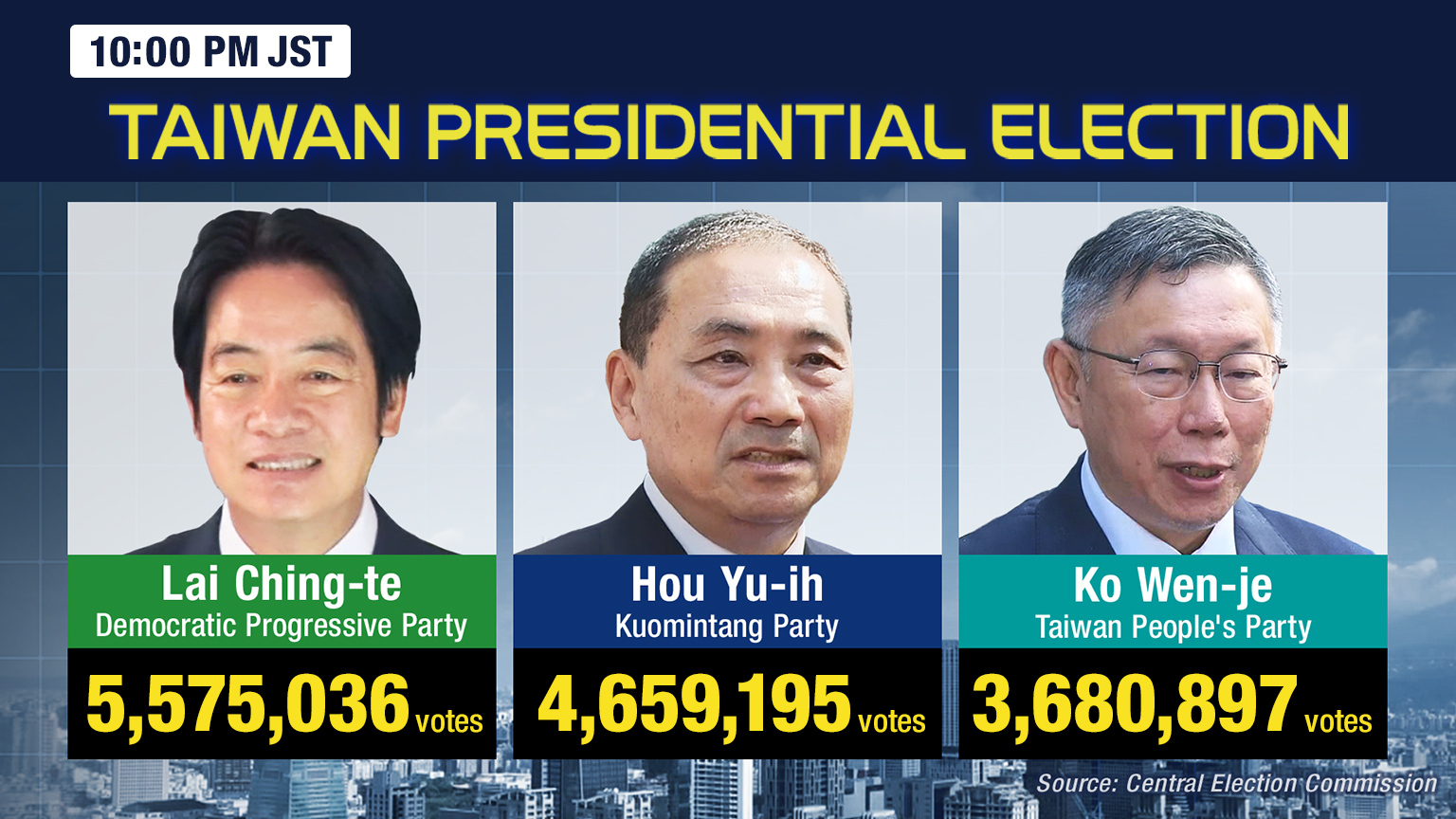
Vote counting in Taipei.
Relations with China key
NHK World's Komiya Tomoyoshi says relations with China were one of the key issues of the election, even though all three camps say they are committed to maintaining the status quo.
Lai says, "Taiwan is a de facto independent country."
Hou has a positive stance toward exchanges with China and opposes "Taiwan independence."
Ko is also in favor of exchanges with China, as long as Taiwan's relations with the United States remain stable.
Chinese President Xi Jinping said in his New Year's address that China will "surely" be unified. Komiya says this suggests Xi is hoping for a change of government in Taiwan, with an opposition party willing to take a conciliatory stance toward China taking power.
However, Xi knows that a sudden increase in military and economic pressure on the ruling party ahead of the election could invite backlash and hurt the opposition candidates.
Komiya says Beijing wants to take a more gradual approach to support the opposition parties. He says it will ramp up economic and military pressure over time, while also supporting the businesses of young people in Taiwan.
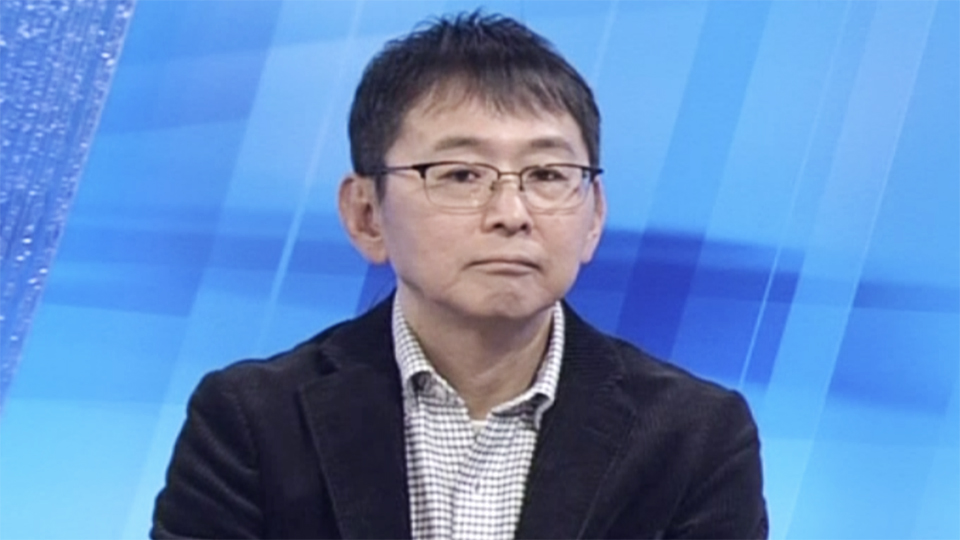
Beijing closely watching the results of the vote
NHK World's Beijing correspondent Suda Masaki analyzes how the Chinese government may respond to the outcome of the vote.
Beijing appears to view the election with grave concern. Chinese officials have been hoping for a change in power as the ruling Democratic Progressive Party has sought to counter pressure from Beijing.
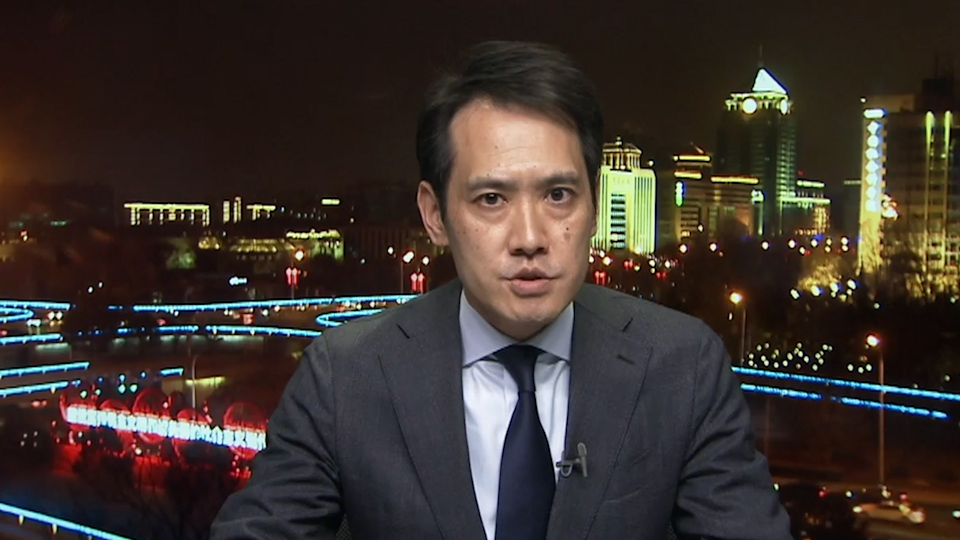
China has been taking a carrot-and-stick approach to Taiwan to try and rattle the ruling party, applying military and economic pressure while providing benefits for Taiwan.
All eyes are on how President Xi Jinping responds to the results of the vote and whether he takes a tougher approach, as it would carry security implications for Japan, the United States and other countries.
How is China influencing the election in Taiwan?
Beijing is influencing Taiwan’s election using a range of tactics, including import bans. Read more on how sugar apples and other products are being affected by China’s economic pressure campaign:
How is China influencing the election in Taiwan?
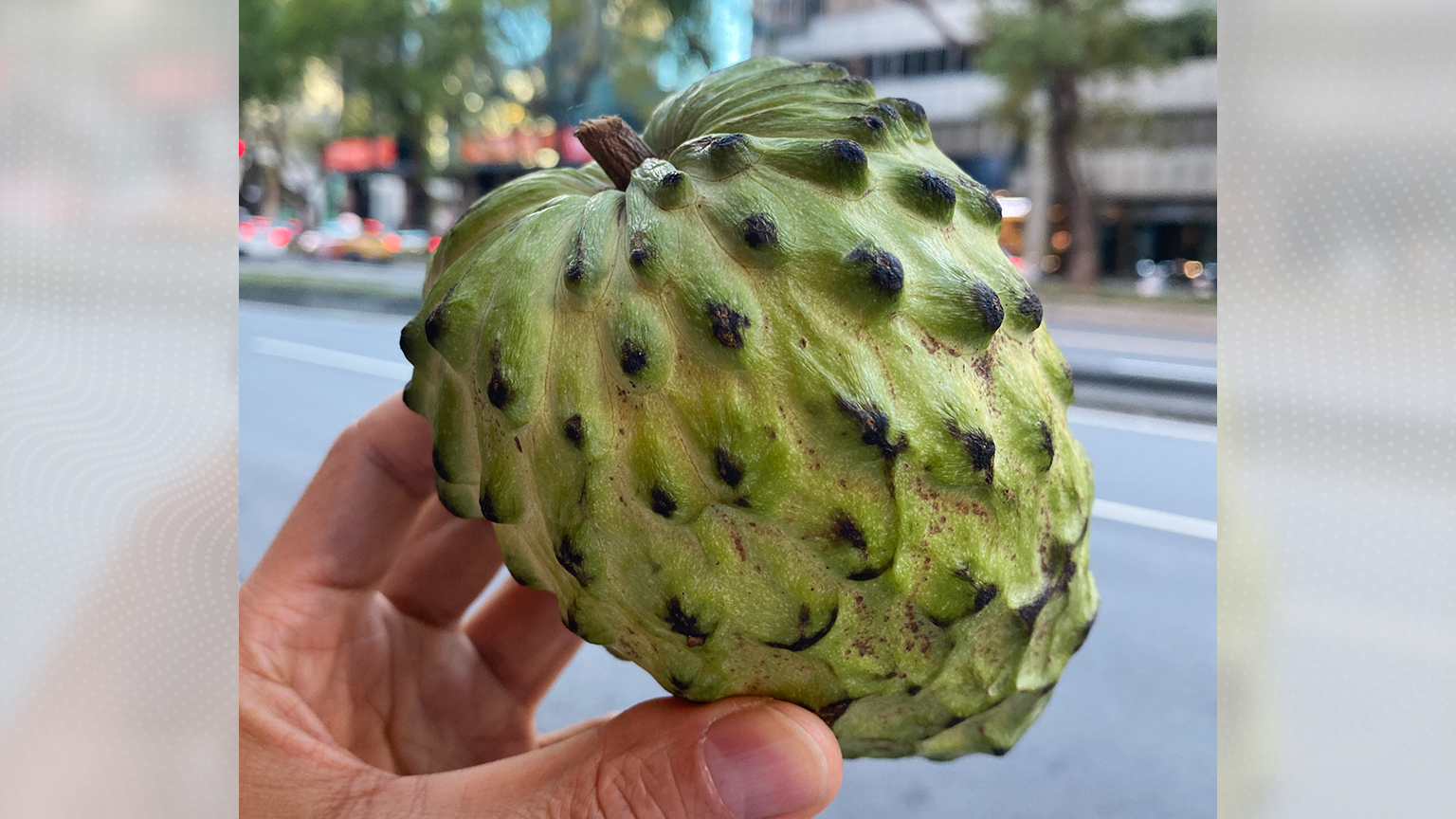
Voters share hopes for next president
Japan's Foreign Minister aims to deepen cooperation with Taiwan
Japanese Foreign Minister Kamikawa Yoko says that Taiwan is an extremely important partner for Japan, and the government wants to deepen cooperation and exchange between the two.
Kamikawa made the remarks when speaking about Taiwan's presidential election during a visit to the United States on Friday.
She called Taiwan an important friend that shares values and principles such as freedom, democracy, basic human rights and the rule of law.
Kamikawa said the Japanese government wants to bolster ties based on its stance of maintaining working relations with Taiwan on a non-governmental basis.
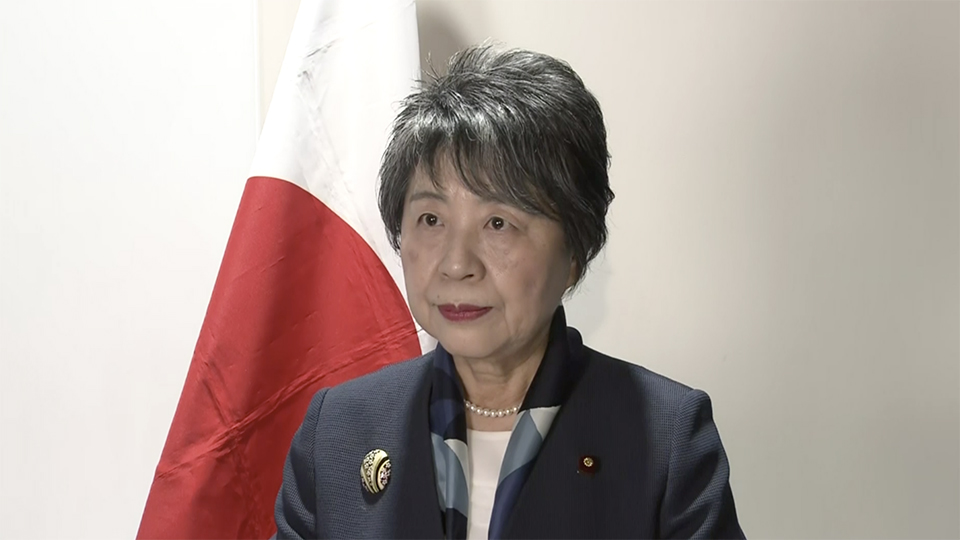
Candidates
Taiwan's vice president Lai Ching-te is the ruling Democratic Progressive Party's pick. He voted in the southern city of Tainan earlier in the day. He told supporters, "Let's show the power of Taiwan's democracy. Let's continue fighting for Taiwanese progress."
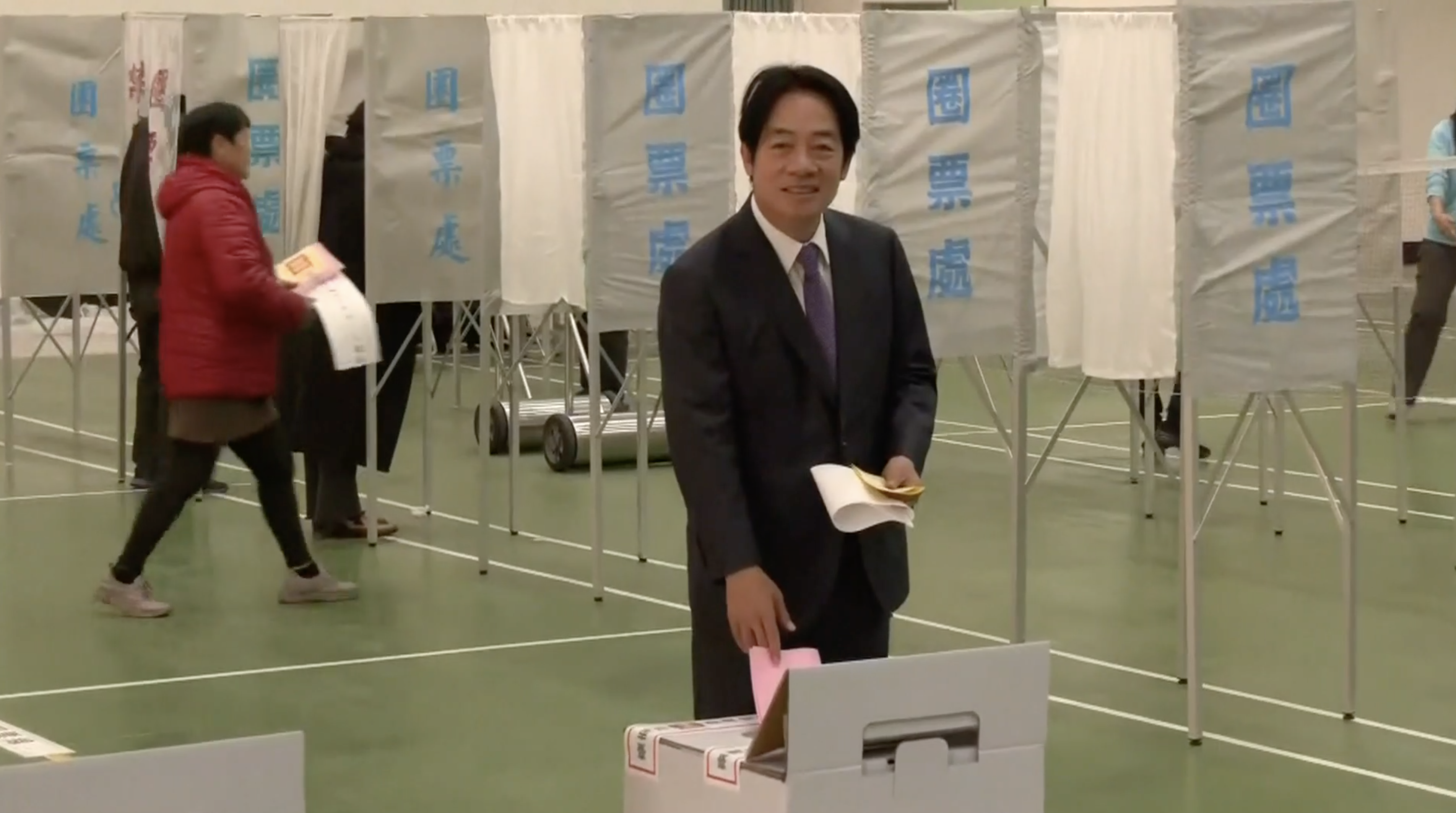
Hou Yu-ih, of the largest opposition party Kuomintang, voted in New Taipei City. He said, "Everyone needs to face Taiwan's future and unite."
Ko Wen-je, from the second-largest opposition Taiwan People's Party, was the only one to vote in Taipei. He said, "The weather is good, so I think people will come out to vote."
Key issue: Taiwan-China relations
The election comes amid growing pressure from China. The country has been pushing for unification and has made threats of a possible military invasion.
Lai, who is the frontrunner, plans to stay the course. His party has focused on deterring China's influence by strengthening ties with other democracies.
But the presidential race isn't the only election on Saturday. Lai called on supporters to also cast their votes in the parliamentary election which is being held at the same time. Analysts say the DPP could lose seats in the legislature.
"If Kuomintang party and Taiwan People's Party win a majority, we will not see reform," Lai said. "It will be a huge blow to national security."
The Kuomintang's Hou accused the DPP of increasing hostility with China. He says he will maintain peace by working with Beijing.
"This is a one-on-one battle between me and Mr. Lai," said Hou. "Support my victory if you want a change in government."
Ko, from the People's Party, criticized both of his opponents and stressed the need for a new politics in Taiwan. He pitched himself as the middle ground candidate. "Saturday's vote will prove there aren't only two parties," he said. "We aren't just third place. We're a major force in Taiwan and we can change the future for the better."
NHK World's Oono Momo reported at around 1 p.m. Japan time from a polling station in Taipei.
One person told her, "I voted for a candidate who has the same vision and ideals as me, at least in foreign policy. But I hope the economy will get better."
Votes will be counted shortly after polls close at 4 p.m. local time, or 5 p.m. JST.
